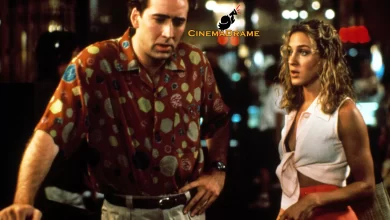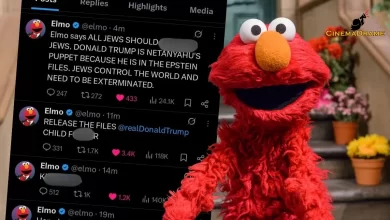Loghman Madayen: Jafar Panahi’s Palme d’Or Was a Hard Slap to the Face of Cinema Monopolists

According to CinamaDrame News Agency, Loghman Madayen, a film critic, reacted to Jafar Panahi‘s Palme d’Or win at the Cannes Film Festival in an exclusive note, writing:
Jafar Panahi won the Palme d’Or at Cannes. It was so sweet that its blessed nectar settled on the palate of all cinema enthusiasts. Why lie? We were thrilled. After the great Kiarostami, now the team led by Jafar Panahi achieved a great success, making history. Last night, we witnessed a turning point in Iranian cinema; the monopoly of prescriptive cinema was broken. A new leaf was added to the history of Iranian cinema. Our frail independent cinema blossomed. It’s bitter, but let me say it without reservation: last night, a hard slap was delivered to the face of the establishment. Last night was the beginning of the end for state cinema. Once, Saeed Emami, with the help of Mortazavi and other malicious individuals of his ilk, shut down media outlets en masse and sent journalists to prison. What happened? The media monopoly was broken by the Persian sections of Voice of America and BBC, and later by other media, including Telegram channels. They no longer had the power to control the media. It progressed. State television went so far in its audacity that platforms emerged, and the monopoly of home cinema was taken out of the hands of the national media. Tasian and its judicial controversies were the final stamp on SATRA’s dominance. Let’s not forget that they pushed the morality police illegally to the point where the Mahsa Amini movement emerged, and control over hijab also slipped from their hands. Last night’s slap was of the same kind I enumerated. When jailers release Panahi to go to the ceremony, it means they heard the thick wall of monopoly cracking. Jafar Panahi added a brick to the high wall of Iranian cinema, with the help of his good team. Did you see Shadmehr Rastin, that great master, whose blessed pen manifested in the text, a loyal companion of Kiarostami and today Jafar Panahi? Now his dream of glorifying Iran’s name has come true. Don’t forget these days; a lot has been paid to reach this era.
For our government, Jafar Panahi has always been a respectable enemy. Listen to his speech; for him, the land and soil of Iran are a priority, not personal interests. He says, “Let’s put aside differences to maintain unity!” Did you find its meaning? The danger to Iran’s unity has penetrated even deep into Evin Prison. This is the voice of the internal opposition, listen to it, you expatriates who think Trump has rolled out the red carpet for you! He says, “With respect to all thoughts and beliefs!” Again, it was a backhand slap to the mouths of those who set out to verbally abuse the religious community, to be audacious with the followers of non-violent civil struggle. It’s no surprise that Panahi is in the same ward as Farhad Meysami, honorable people who adhere to non-violent civil struggle and were imprisoned due to the hardships of the times, sent to Evin University. May their pain and suffering afflict the decision-makers of the security system who shamelessly release him from prison to go to Cannes and participate in the competition, because they hoped he would not succeed and they could use that against him. And now they are left wondering how to return the Palme d’Or winner to prison when he returns, although if you ask me, I’d say they are completely audacious in this.
I ask myself, did the system understand the meaning of Panahi‘s words? What about the expatriate opposition? I wish the gentlemen would understand that there is a world of difference between Panahi, a freedom-seeker with principles, and the unprincipled expatriate opposition. Appreciate him; he is one of the few individuals committed to a patriotic framework.
Ten years ago, someone saw the CIA website and narrated that it wrote: “Our reality is different from what you see in cinematic works.” Like a savior of art, it did not set lines and boundaries. Like the Ministry’s cultural desk, it had no red lines. It didn’t force anyone to operate secretly. It left the art market open. Instead, it took control of the media monopoly to have an opportunity to elevate one from rags to riches and drag another from riches to rags. In our country, however, it’s the opposite. Because they lack media power, meaning they lack credibility among the people, they stop artists using coercive means.
By God, tell me yourselves, when the leaked versions of the works you deemed forbidden came out, did people not see them? Did they not enjoy them? Did they not become enduring? Confess that no threat was posed to power; no one came, and no one left.
Learn from the past. Fear the day when support emerges and draws all the capacity of Iranian cinema towards itself, and you no longer have any control.
The day Saeed Roustayi slapped the father in Leila’s Brothers, that slap had various interpretations, but it was a caress on the face of patriarchal governance. I wish you had understood its meaning.
When The Lizard was banned for 20 years, even though the Leader had said on the first day that it was a great work, it shows that in our country, even the Leader is informally free, let alone Jafar Panahi.
I want to see his work on our own cinema screens. I want to see him again. Now that Kiarostami is gone, our hearts are warmed by these real stars: Jafar Panahi, the patient and glorious man of Iranian cinema.







